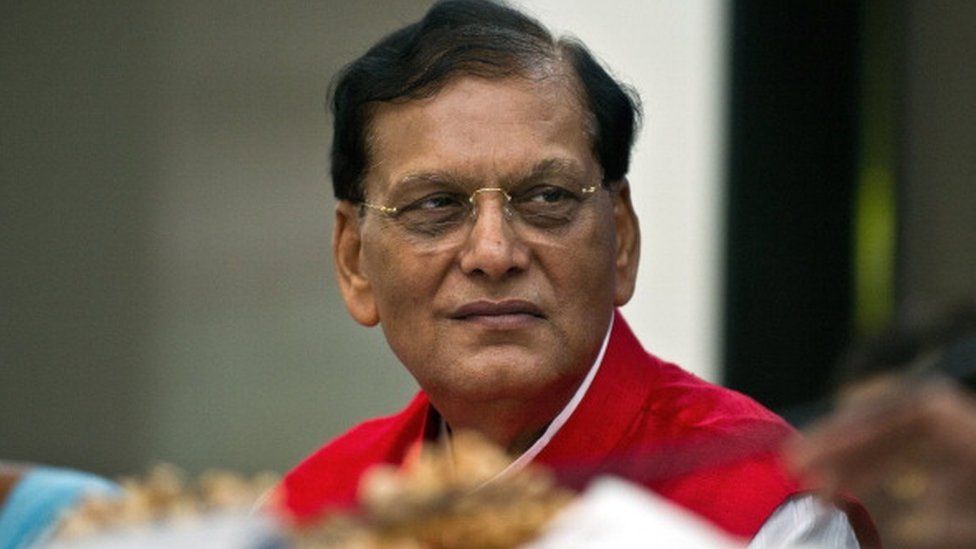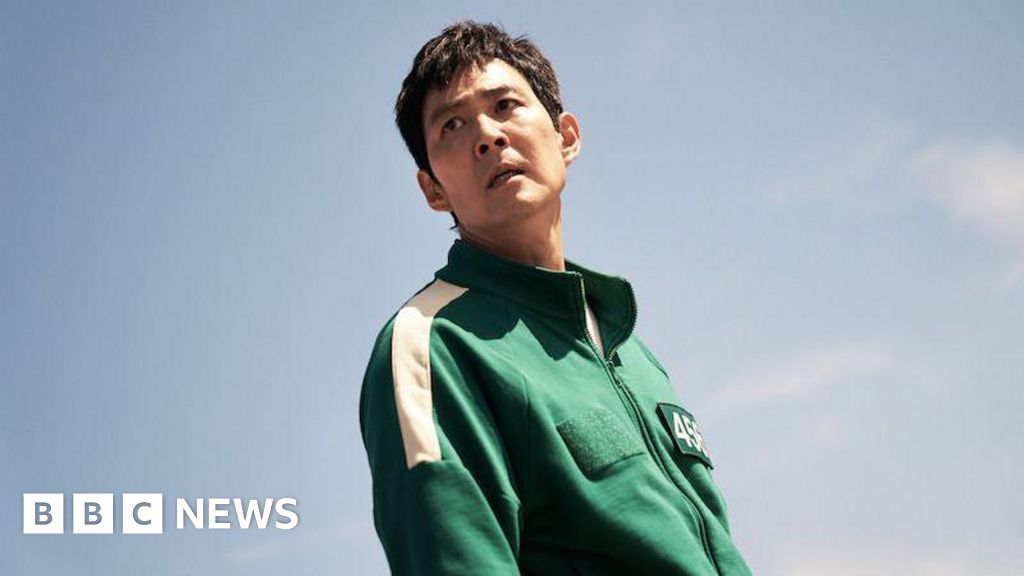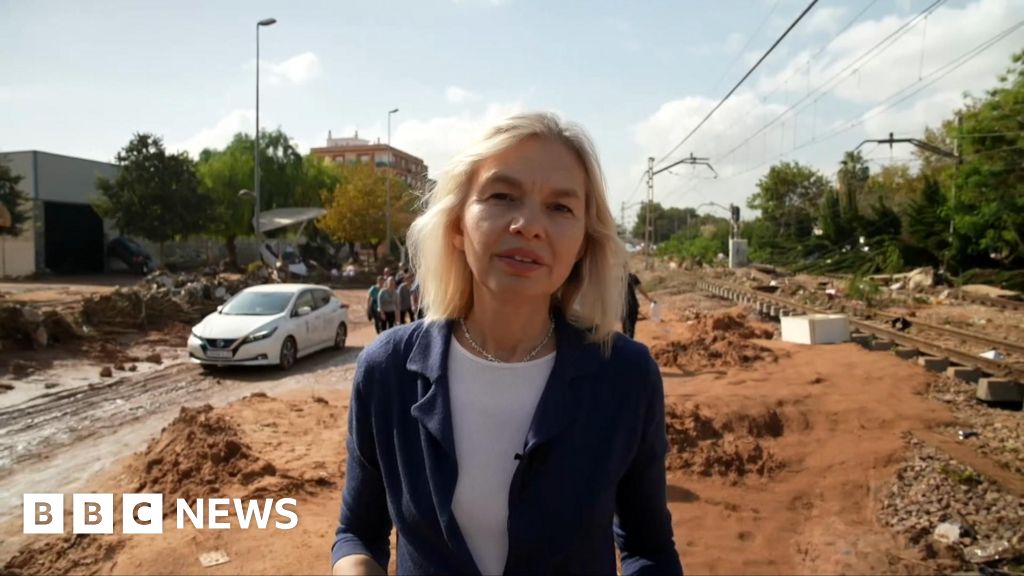ARTICLE AD BOX
 Image source, Getty Images
Image source, Getty Images
Bindeshwar Pathak won many prestigious Indian and global awards for his work
By Geeta Pandey and Zoya Mateen
BBC News, Delhi
Campaigner and social reformer Bindeshwar Pathak who died on Tuesday, aged 80, was a man who revolutionised the concept of toilets in India.
In the early 1970s, he made a cheap twin-pit toilet - a design which has since been used to build clean toilets in hundreds of thousands of homes across India, helping millions of women access safe sanitation facilities.
Over the years, his Sulabh Foundation also helped many Indian cities set up pay-per-use toilets that were clean and safe.
The concept - one rupee for a pee and two rupees for a poo - quickly caught on in a country where using a toilet in public often meant squatting behind a tree.
His work in challenging India's tenacious caste discrimination - which puts those at the bottom of the social hierarchy at a disadvantage - and uplifting manual scavengers, mostly Dalits (formerly untouchables), has also been widely recognised.
During his lifetime, Mr Pathak won many prestigious Indian and global awards. As his popularity grew, the press dubbed him "Mr Sanitation" and "The Toilet Man of India". In a report, the Washington Post described him as a "mini revolutionary" and he figured in the Economist Global Diversity List in 2015.
According to a New York Times report in 1989, he once led 100 girls from families of manual scavengers in Rajasthan state into a temple - where Dalits were traditionally barred from entering - and ate a meal in public with them.
In recent years, the Sulabh Foundation also tied up with the Indian government's flagship Swachh Bharat Abhiyan (Clean India Campaign) which aims to end open defecation.
Mr Pathak, who often said that his "priority in life was to solve the problem of sanitation for people" and that "I love this work more than my sons and daughters", was deeply influenced by the teachings of Mahatma Gandhi, India's independence movement leader.
Born in an upper-caste Brahmin family, Mr Pathak says that even as a child he was acutely aware of his privilege and confused by the unforgiving realities of the caste system, which dictated life in his village in every possible way.
Image source, Getty Images
Image caption,Sulabh built public toilets at crowded places such as the railway station in Delhi
In an interview with the BBC in 2017, he narrated an incident from his childhood about a woman who brought deliveries to their home. After every visit, his grandmother would sprinkle water in the area to "purify" the house. "I used to wonder why. People used to tell me that she was an untouchable and the land she walked on became polluted," he said.
A curious child, he would touch her surreptitiously to see if that would lead to any "change in him". One day, his grandmother caught him and there was "an uproar" in the house.
"A priest was called in and told the family that Pathak had been contaminated and must be banished from home. That's when my mum intervened - he's just a boy, she said, there must be another solution."
It turned out that there was another so-called remedy, but it was "equally terrible".
Mr Pathak said he was then forced to swallow cow dung and urine (cows are considered sacred by Hindus) - it was "traumatic for me", he recalled.
The incident was a turning point for Mr Pathak, a moment of reckoning when he realised the extent of the stigma around untouchability in those days.
"I would obsess over why we lived in such an unfair society with different rules for different people," he said in the interview. "You can touch a dog, but touching another human who's just like you causes a family crisis."
Keenly aware of this social inequality, he studied sociology in college and do something about this.
In the summer of 1968, a newly married Mr Pathak spent three months in a Dalit colony.
This greatly upset his family and community - the Brahmins said they were disgusted by his behaviour, his father was unhappy and his father-in-law accused him of bringing shame to their culture.
"My father-in-law was so furious with me that he told me he never wanted to see my face again, and that he regretted letting his daughter marry a man like me," Mr Pathak told the BBC.
He said the outburst saddened him, but he never regretted his choices. "I thought to myself, I could leave my wife but not my mission."
Image source, Getty Images
Image caption,Mr Pathak designed a cheap toilet which has been used to build safe and clean facilities in hundreds of thousands of homes across India
In 1969, Mr Pathak made a breakthrough in his research and designed a twin-pit toilet that freed thousands of manual scavengers from a life of cleaning excrement with their hands.
The government of Bihar commissioned him to build 200 of these, after which his idea became popular and lots of important people started coming to see him and seek his advice.
All this attention also improved his family's opinion of his work.
"My wife had always supported me, but it was only now that my father-in-law started to think that I must be doing something right," he told the BBC.
The Sulabh Foundation has since built 1.5 million toilets that are used by more than 20 million people in India. The design is also used in many other parts of the world.
And since 1974, Sulabh has built more than 9,000 "pay-and-use" toilets in urban slums and at public places such as bus stands, markets and railway stations across the country.
In a country full of fly-ridden stinky bathrooms, Mr Pathak's work is recognised as a great instance of public service.
His work transformed the lives of millions of Indians, especially women, who earlier had no access to toilets in crowded public places and had to exercise bladder control for hours.
In his interview with the BBC, he said: "Sanitation is my religion. If you have not helped another human being you have not prayed to God yet."
BBC News India is now on YouTube. Click here to subscribe and watch our documentaries, explainers and features.

 1 year ago
19
1 year ago
19








 English (US)
English (US)